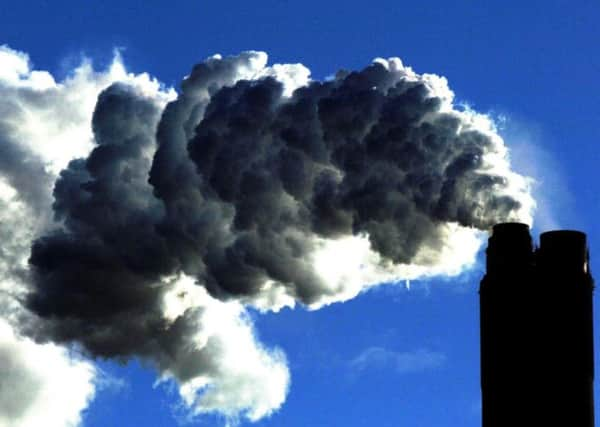‘Dump 80% of world coal to avoid climate disaster’


A third of the world’s oil and more than half of gas reserves must also stay in the ground until 2050 to limit temperature rises to 2C and stave off the most dangerous effects of global warming, according to experts behind the study.
They say drilling for fossil fuels in the Arctic is “inconsistent” with efforts to curb climate change.
Advertisement
Hide AdAdvertisement
Hide AdThe research, by scientists at University College London (UCL), examined how much coal, oil and gas must remain unburned in the next 35 years to curb greenhouse gas emissions that are causing the planet to heat up.
Results showed places in the world where fossil fuels could be extracted cost-effectively and where they should remain underground.
Global production must be slashed by 223 billion barrels of oil and 290 billion tonnes of coal to keep temperature increases below 2C.
The researchers warn that “business as usual” puts the world on track for rises of 5C.
But they say shale oil and gas resources could be developed in Europe, including in the UK.
However, policy makers would have to consider which fossil fuel reserves would need to be left untapped to stay within the carbon emissions “budget” required to prevent temperatures rising too high.
The report suggests the vast majority of coal in the United States and Russia must not be used, even if technology to capture carbon dioxide emissions and store them underground is developed.
More than 260 billion barrels of oil in the Middle East, equivalent to Saudi Arabia’s total oil reserves, must also stay in the ground.
Advertisement
Hide AdAdvertisement
Hide AdThe estimated 100 billion barrels of oil and 35 trillion cubic metres of gas in the Arctic circle are “unburnable” because drilling there is too costly to justify if attempting to battle climate change.
Increasing the use of unconventional oil such as Canada’s tar sands also goes against efforts to restrict temperature rises, the study said.
Lead author Dr Christophe McGlade, from the UCL Institute of Sustainable Resources, said: “Policy makers must realise that their instincts to completely use the fossil fuels within their countries are wholly incompatible with their commitments to the 2C goal.
“If they go ahead with developing their own resource, they must be asked which reserves elsewhere should remain unburnt in order for the carbon budget not to be exceeded.”
CONNECT WITH THE SCOTSMAN
• Subscribe to our daily newsletter (requires registration) and get the latest news, sport and business headlines delivered to your inbox every morning
Co-author Professor Paul Ekins said he was in favour of exploring for shale gas in the UK.
“If it turns out we can exploit unconventional gas in a cost-optimal way I see no reason why we shouldn’t do it, provided local environmental implications can be resolved - and that is a big proviso.”
He also pointed out it may be wiser to import cheaper resources from elsewhere instead of investing huge sums of money in wringing out the remaining stores of North Sea oil.
Advertisement
Hide AdAdvertisement
Hide AdBut environmental campaigners warn it would be “both dangerously irresponsible and economically foolish” to clean out oil deposits and tap sources of unconventional gas - often retrieved though hydraulic fracturing, or fracking.
“Climate science and global justice demand that we leave the vast majority of fossil fuels in the ground and focus instead on transforming our energy systems to run on clean, reliable, renewable sources,” said Dr Richard Dixon, director of environmental campaign group Friends of the Earth Scotland.
“Opening up new frontiers of unconventional gas or chasing the last drops of North Sea oil is both dangerously irresponsible and economically foolish.”
He said the UK and Scottish governments should “avoid going down this blind alley” and commit to leaving fossil fuels in the ground.
He added: “Although Scotland is doing well on exploiting our rich resource of renewable energy, we also produce seven times more fossil fuels that we use.
“We need to start planning for the run down of North Sea production instead of treating it as a sacred cow.”
SCOTSMAN TABLET AND IPHONE APPS